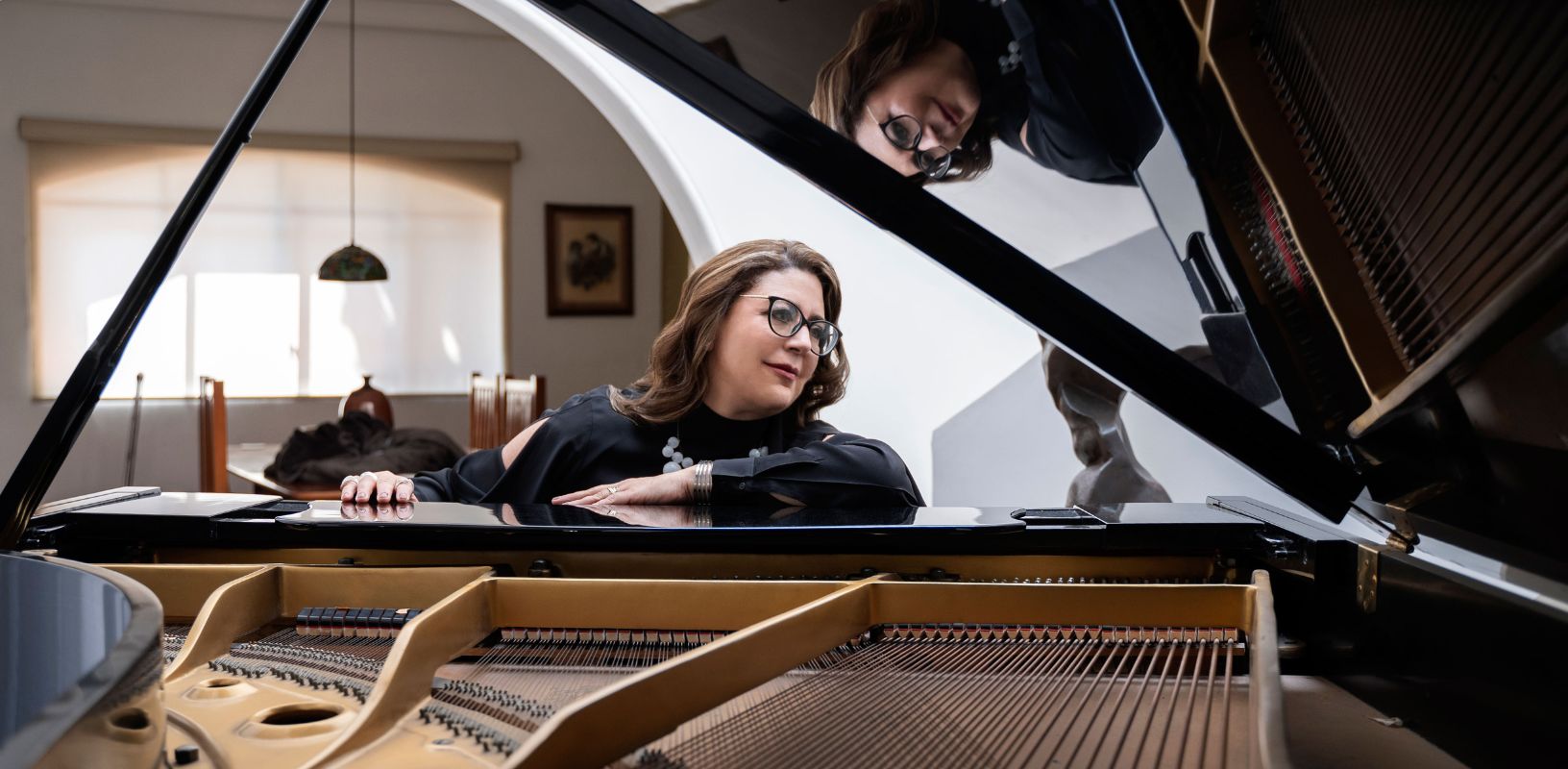Gabriela Ortiz: Her Life and Music

Gabriela Ortiz's rhythmically driven musical language embraces folk music and jazz, and has been championed by orchestras around the world. Part of a profile series throughout March—Women’s History Month—in which we explore the lives, music, and inspirations of extraordinary composers from around the world. View more women composer profiles here.
Her Story
Gabriela Ortiz’s musical journey began at home—her parents were founding members of the famous Mexican folk music ensemble ‘Los Folkloristas,’ and young Gabriela grew up listening to a wide range of music—from salsa music to Mahler and Beethoven symphonies—and surrounded by musical giants, such as Chilean folk singer Víctor Jara. Her mother, a pianist, encouraged her to learn piano, and she remembers encountering Bartók's Mikrokosmos at age 13: She felt an instant connection to its sense of complex rhythm and harmony, and its embrace of folk music, which eventually made her want to become a composer herself.
Ortiz trained at the National Conservatory of Music with composer Mario Lavista, himself a student of the great Mexican composer Carlos Chávez. Ortiz feels this musical lineage and legacy strongly in her music. She later moved to London to study at The Guildhall School of Music and Drama and The City University in London. While there, she became exposed to the world of European experimental music and electronics, and cites this as an important period of development: “Composers need to get out of their comfort zone. You need to take risks to learn about yourself.”
It became clear to her though that she didn’t fit into the European aesthetic, and that her path led in a different direction. “I realized that I came from a totally different continent and sound world, and that I had different models that I could choose from. Sometimes you have to go abroad to discover the value of where you came from.”
Upon returning to Mexico, Ortiz discovered a greatly changed country that had become very Americanized in a short span of time; in parallel, while visiting her brother in Los Angeles, she noticed how Mexican the city felt. The rapid globalization deeply affected her approach to composition, and revealed the diminishing importance of borders in music, society, and culture.
Ortiz’s first opportunity to work with a major international ensemble was with the Kronos Quartet, for whom she wrote her celebrated quartet Altar de Muertos. Part of her series of “musical altar” pieces, this was a landmark work in her career that wove together Latin American culture in a European framework.
Her first opera, Únicamente la verdad, written with her brother, video artist Rubén Ortiz Torres, was created over the course of eight years and completed in 2008. An opera about immigration, borders, and drug smuggling, Únicamente had to overcome strong resistance, but eventually was presented at Indiana University and Long Beach Opera. Creating this opera was a crucial step for Ortiz in exploring important social and cultural issues through her music.
One of the most important collaborations of Ortiz’s career has been her relationship with Gustavo Dudamel and the Los Angeles Philharmonic, who have commissioned nine works from her, including Yanga for percussion ensemble and orchestra, Kauyumari for orchestra, and Altar de Cuerda for violin and orchestra. Ortiz states, “It’s so important as a composer to hear your music so you can learn. The LA Phil embraced every idea I had. Being able to compose orchestral music and listen to these works has been essential to my career.” Music Director Gustavo Dudamel himself has stated, “Gabriela is one of the most talented composers in the world. Not only in the continent, not only in Mexico—in the world.”
Select Tracks
1. Únicamente la verdad: Chamber opera / LISTEN
2. Altar de Muertos: for string quartet / LISTEN
3. Atlas-Pumas: for violin and marimba / LISTEN
4. Baalkah: for soprano and string quartet / LISTEN
Her Sound
“Rhythm is very important in my music. Pulse is extremely important.” Ortiz’s rhythmically driven musical language embraces folk music and jazz. Recent works such as Altar de Cuerda, her violin concerto that the LA Phil toured internationally with soloist Maria Duenas, show Ortiz’s imaginative use of color and timbre, ranging from ghostly reverberations from crystal glasses to full-bodied, powerful string writing. She cites Stravinsky, Bartók, and Chavez as being major influences in her work.
Collaborators
“It’s extremely important to be close to performers. You learn from performers.” Ortiz cites working with important percussion ensembles in Mexico, such as Tambuco Percussion Group who premiered her percussion concerto Yanga, as being instrumental to her development as a composer. Going to performers’ studios and exploring sound has been important to her composition process. Ortiz has also written extensively for flutist Alejandro Escuer, her husband.
In addition to the Los Angeles Philharmonic, Ortiz cites conductor Carlos Miguel Prieto as a major champion of her music, who frequently programs her music and commissioned Hominum, one of her major orchestral works.
Photo: Mara Arteaga
